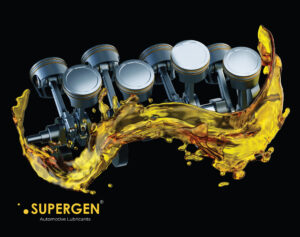Introduction:
Engine oil is the lifeblood of your vehicle’s engine, playing a critical role in lubrication, cooling, and protecting vital components from wear and corrosion. With a myriad of options available, understanding the different types, grades, and ratings of engine oil is essential for optimal performance and longevity. In this guide, we’ll delve into the intricacies of engine oil to empower you with the knowledge needed to make informed choices.
Types of Engine Oil:
Synthetic Engine Oil:
Synthetic oils are formulated using chemically engineered base oils and advanced additives to deliver superior performance in extreme conditions.
Benefits include enhanced lubrication, improved viscosity stability, and superior resistance to oxidation and thermal breakdown.
Premium Engine Oil:
Premium oils are designed for high-performance engines and demanding driving conditions, offering exceptional protection against wear, deposits, and sludge buildup.
These oils often incorporate proprietary additive packages tailored to specific engine requirements, delivering optimal performance and durability.
Mineral Engine Oil:
Mineral oils are derived from crude oil through a refining process, making them the most traditional and affordable option.
While lacking the advanced properties of synthetic oils, mineral oils provide adequate lubrication for standard driving conditions and older engine designs.
Grades of Engine Oil:
Viscosity Grades:
Engine oils are classified based on their viscosity, which refers to the oil’s resistance to flow at different temperatures.
Common viscosity grades include 0W-20, 5W-30, and 10W-40, with the numbers representing the oil’s flow characteristics at low and high temperatures.
SAE Viscosity Rating:
The Society of Automotive Engineers (SAE) assigns viscosity ratings to engine oils based on standardized testing procedures.
Lower viscosity oils (e.g., 0W, 5W) offer better cold-start performance, while higher viscosity oils (e.g., 10W, 15W) provide superior protection at elevated temperatures.
Ratings and Classifications:
API Service Classification:
The American Petroleum Institute (API) assigns service categories (e.g., SN, CK) to engine oils based on their performance and suitability for gasoline and diesel engines.
These classifications indicate the oil’s ability to meet specific engine protection and emission control standards.
ILSAC Rating:
The International Lubricant Standardization and Approval Committee (ILSAC) sets performance standards for engine oils, focusing on fuel efficiency and emission reduction.
ILSAC ratings (e.g., GF-6) denote oils that meet stringent requirements for engine protection, fuel economy, and compatibility with emission control systems.
OEM Approvals:
Original Equipment Manufacturers (OEMs) often specify recommended oil formulations for their vehicles to ensure optimal performance and warranty compliance.
Using OEM-approved oils guarantees compatibility with engine components and systems, minimizing the risk of premature wear or damage.
API Resource Conserving Designation:
Engine oils bearing the API Resource Conserving label meet additional fuel efficiency requirements and contain friction-reducing additives.
These oils help improve fuel economy and reduce carbon emissions by minimizing internal engine friction and energy losses.
Synthetic Base Oils:
Advanced Formulations:
Synthetic base oils are manufactured through complex chemical processes, resulting in uniform molecular structures and superior performance characteristics.
These oils exhibit excellent thermal stability, oxidative resistance, and shear stability, making them ideal for high-stress applications.
Synthetic Blend Options:
Synthetic blends combine synthetic and mineral base oils with specialized additives to deliver enhanced performance at a lower cost.
These blends offer a balance of performance and affordability, providing improved protection and longevity compared to conventional mineral oils.
Conclusion:
Choosing the right engine oil is crucial for maintaining the health and performance of your vehicle’s engine. By understanding the different types, grades, and ratings of engine oil, you can make informed decisions that optimize engine protection, fuel efficiency, and longevity.
Whether you prefer synthetic, premium, or mineral oils, selecting the right formulation for your vehicle’s needs will ensure smooth operation and peace of mind on the road.








